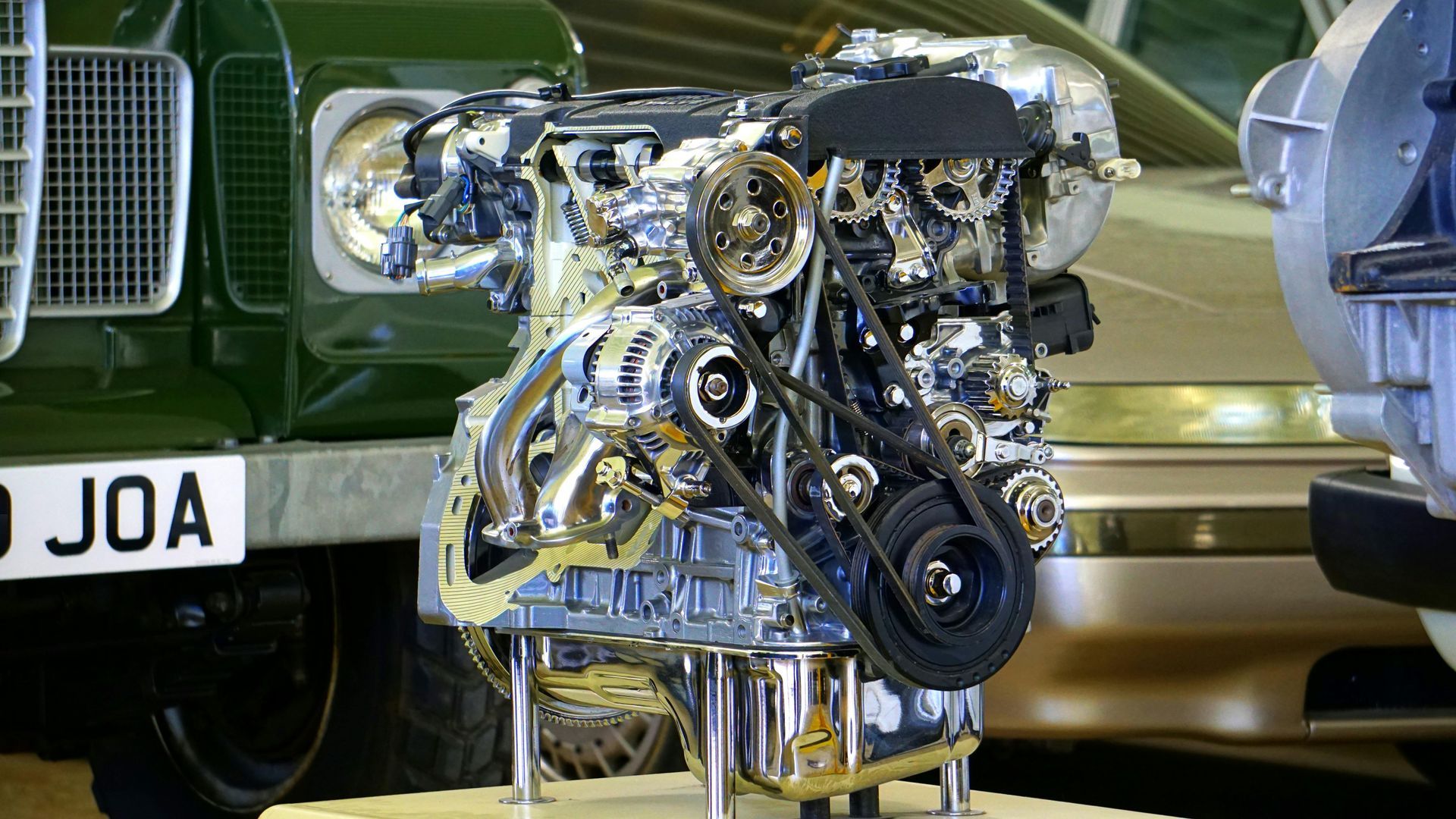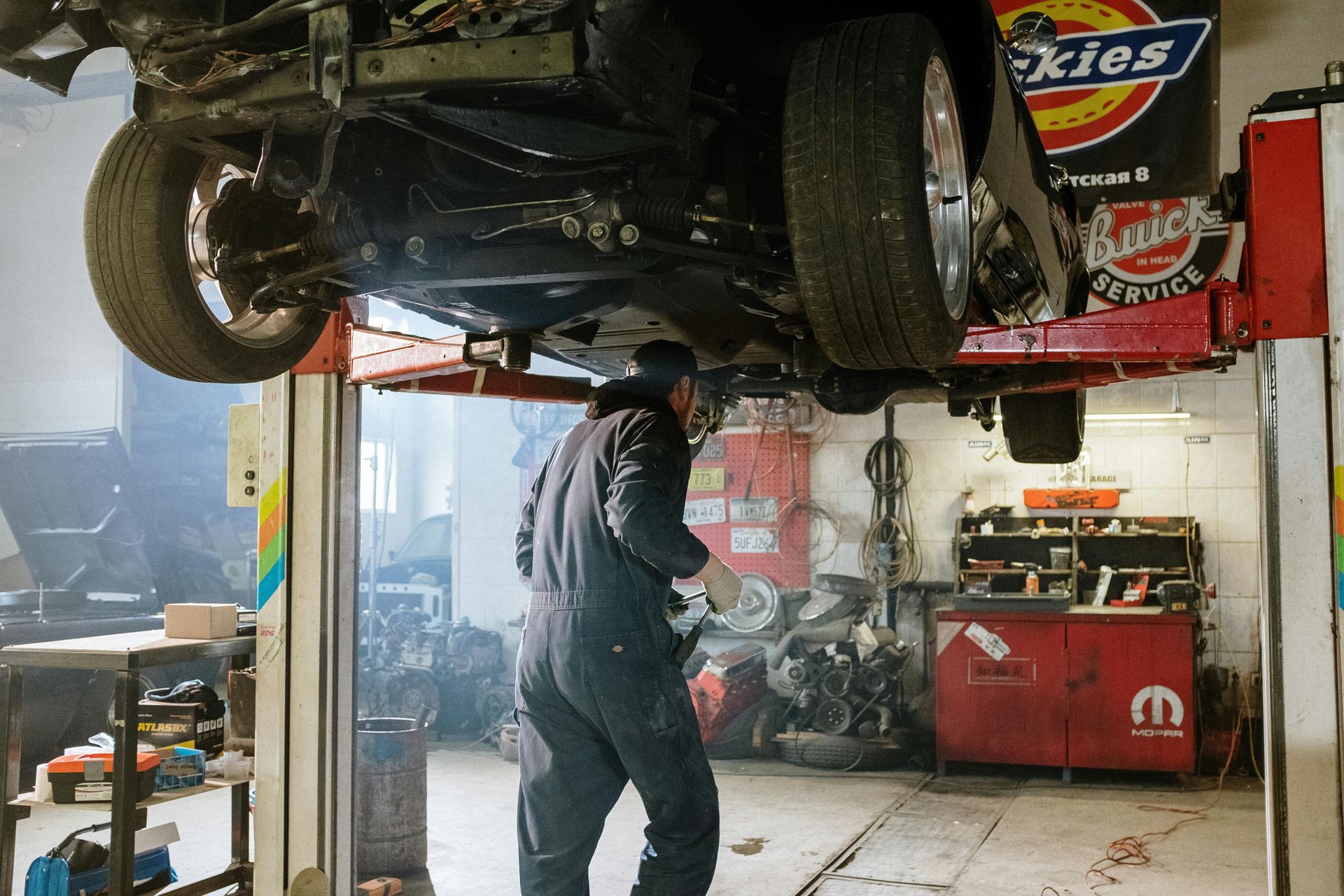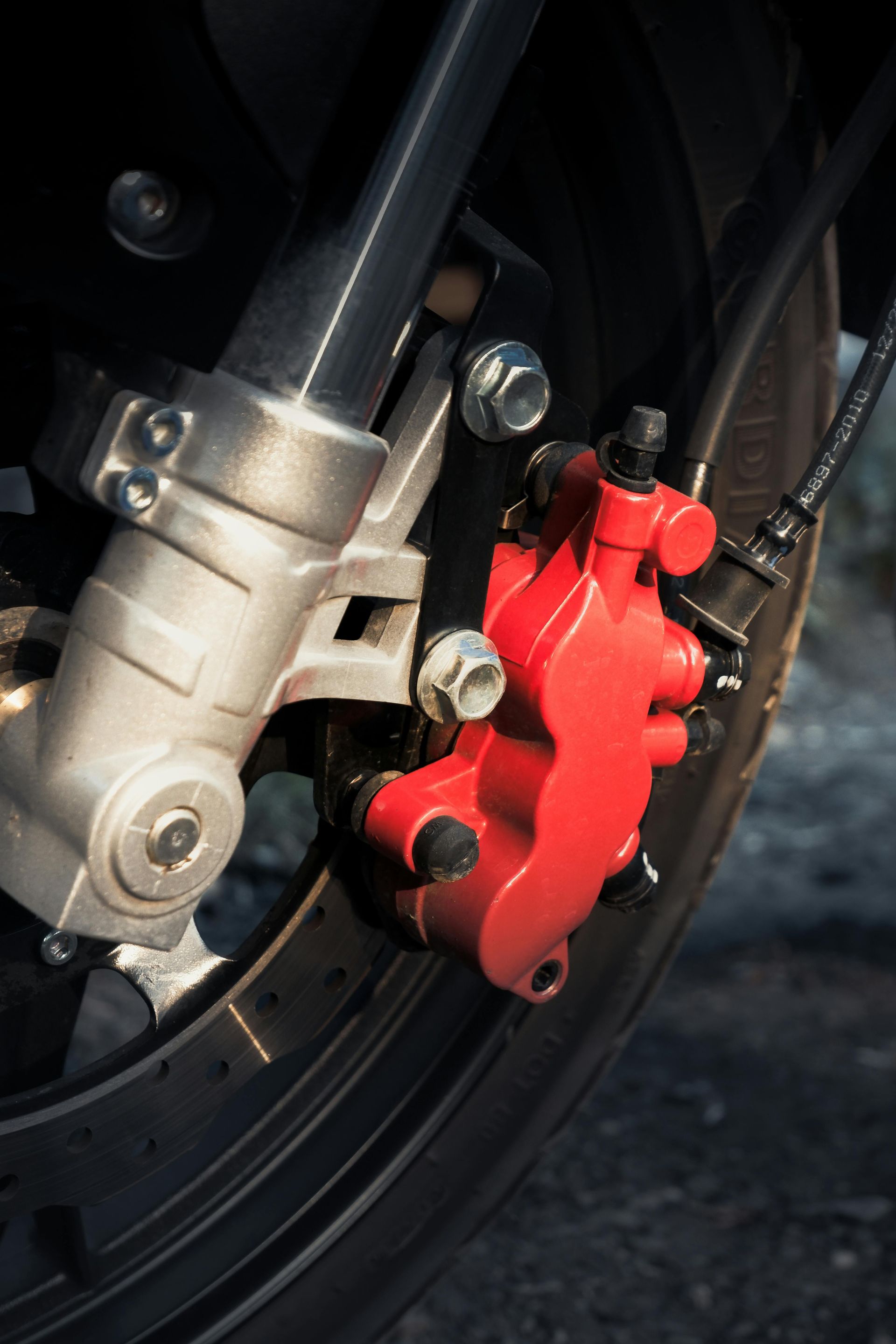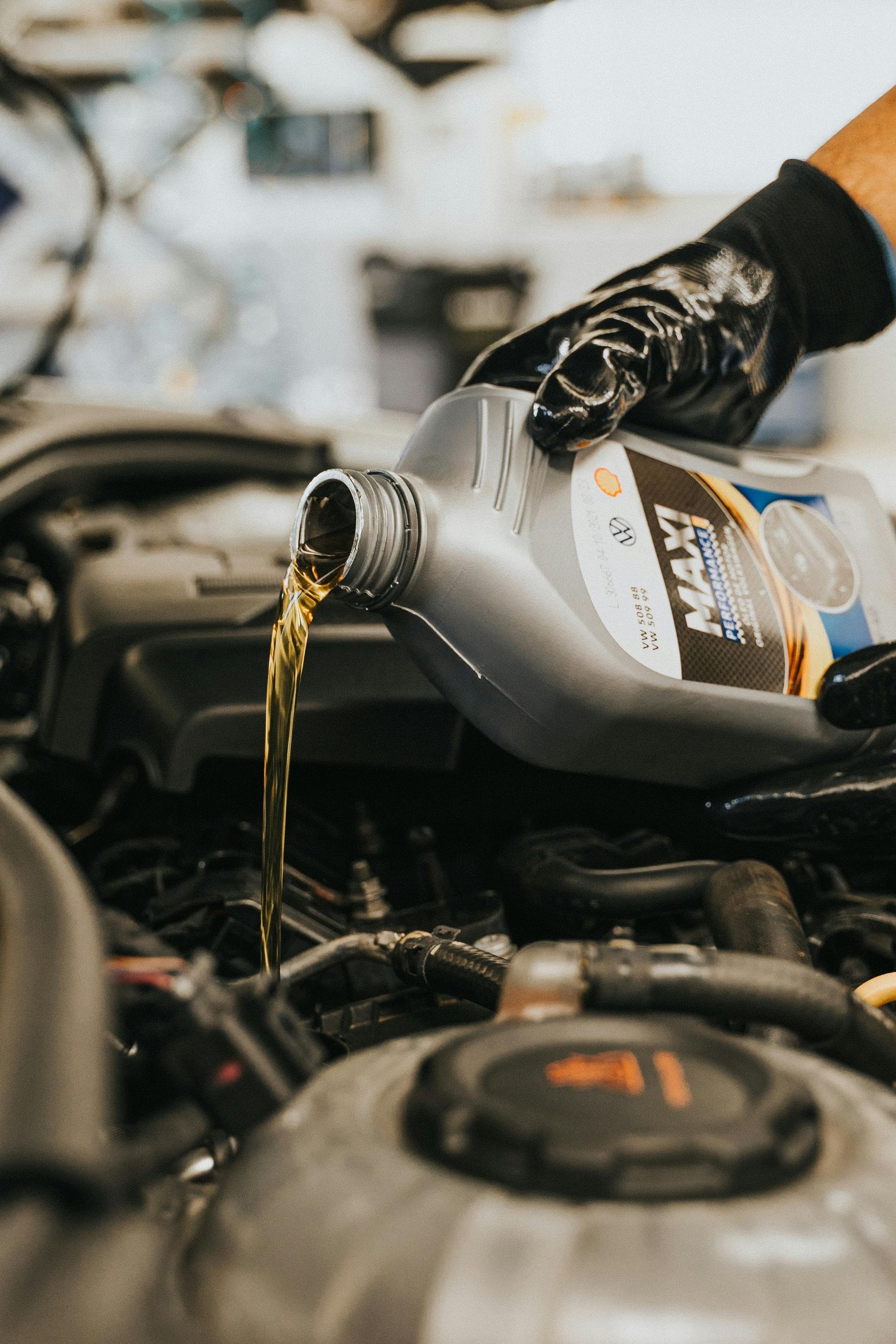10 Warning Signs Your Car Needs Steering and Suspension Services
Are you feeling vibrations in your car while driving? Is it making unusual voices? It may be your sign to get steering and suspension services for your vehicle.
We can understand that as a car owner, your car depends on the suspension and steering system to provide you with a smooth ride.
That is why if you show negligence in taking care of these systems, it can create problems for your vehicle. These minor problems can later be the reason behind major destruction.
Explanation of Suspension and Steering System
Is it all getting too technical to digest? Let’s break it into easy chunks for you
We will start by getting to know about the suspension system and what it is, how does it work? and when do you need car suspension services?
The suspension system is an important part of your car that connects the wheels to the frame or body. It helps in absorbing shock and vibrations from the road surface, allowing for a smooth ride. It also provides stability and prevents the car from tipping over when turning.
There is more
The steering system helps in controlling the direction of the car. It is based on a number of components that work together to turn the wheels in the desired direction. This includes the steering wheel, steering column, power steering pump, and steering gear.
Importance of Regular Steering and Suspension Services
To keep any part of the vehicle or any other princely asset, it is important to work on its regular maintenance. In this scenario, you should make sure that timely car suspension services are performed.
A suspension system that is well maintained and well serviced will help in providing better handling of shocks. It is important for your safety and longevity. Well maintained system also guarantees less premature wear of tires and lower risks of road accidents.
Warning Signs of Faulty Suspension System
It is important to keep an eye out for warning signs for your steering and suspension services . If you notice any of the following signs, it is time to take your car to a professional mechanic.
Difficulty Steering or Turning the Wheel
Due to a worn steering pump or rack, it is possible that you find trouble steering or turning the wheel. It can be difficult to operate your vehicle with this issue.
It is therefore better to stop by an auto repair shop providing suspension repair in Houston, Texas.
Loose or Shaky Steering Wheel
A loose or shaky steering wheel is a sign that there is a problem with your steering system.
The reason behind it can be any damaged part in the system, that can be ball joints, tie rods or any other. It can affect the car’s stability and control, especially when driving at high speed.
Unusual Noises While Turning
Have you ever faced the issue of hearing noises of clunking or squeaking while turning the wheel? It is one of the signs of a damaged steering and suspension system.
It is at point difficult to indicate which specific component of the suspension system is damaged. That is why it is recommended to take your vehicle to a nearby repair shop providing quality suspension services in Texas.
Steering Wheel Vibration
Vibration in steering wheels while driving can also be due to damaged suspension. It can be due to worn-out shocks or struts. This can cause difficulty in controlling your car, especially at high speeds.
Uneven Tire Wear or Bald Spots
Damaged suspension systems are also the reason behind uneven tire wear or bald spots. There can be multiple reasons behind uneven tires.
It can include misaligned wheels, worn-out suspension components, or a damaged steering rack. This can affect your car’s handling and reduce the lifespan of your tires.
Bumpy or Rough Ride
Are you experiencing a bumpy or rough ride, it could be due to worn-out shocks or struts. It not only makes it difficult to control the car but can also kill the comfort of driving. You can visit suspension repair shops in Texas to get the issue fixed as soon as possible.
Car Leans to One Side or Bounces Excessively
Sometimes, you may have noticed that your vehicle is leaning to one side or bouncing excessively. It could be a sign of a suspension problem.
This can cause uneven tire wear and make it dangerous to drive. You should stay safe and make sure to get the steering and suspension services on time.
Difficulty Steering or Turning the Wheel
One of the most obvious warning signs of a failing suspension or steering system is difficulty in steering or turning the wheel.
Have you ever taken the risk of driving with damaged steering? You must not EVER try to do it. It is really dangerous not only for you but also for the other people driving on the road. To save yourself and others from any life mishap, you should make sure to stop by a suspension shop in Texas.
If the power steering pump is malfunctioning or there is a leak in the system, it can cause the steering wheel to become more difficult to turn.
Unusual Noises While Turning
Unusual noises coming from your car while turning can be a sign of a suspension or steering problem. You may hear clunking or banging noises when turning the wheel or going over bumps.
This can be due to damaged shock absorbers, struts or sway bar links. Loose or worn-out tie rods can also cause these noises when turning. On noticing minor issues like these, you should visit Carmotive’s suspension shop in HoustTexas.
Steering Wheel Vibration
Sometimes, our steering indicates a damaged suspension system by vibrating at high speed. Worn-out suspension components, such as ball joints or tie rods, can be the reason the steering wheel vibrates or shakes.
A bent wheel or an unbalanced tire can also be the problem. If you feel a vibration in your steering wheel, it is important to have it checked by a professional mechanic. They can determine the cause as soon as possible to avoid any expensive repair later.
Bonus Point
So, as you have reached here already, we are having an bonus point for you
Delayed or unresponsive steering is also a red flag that cannot be ignored. If your steering wheel feels stiff or unresponsive when turning, it could be due to a damaged power steering system. The loss of control caused due to this reason can delay the response of the steering.
Conclusion
Your car’s suspension and steering system are key points that ensure a safe and smooth ride. Regular inspection and steering and suspension services can help keep it alive.
If you notice any of the warning signs or anything out of the box, you should without any delay visit suspension shops in Texas.
To catch a warning sign, it is important that you are aware of the warning signs beforehand. That is why having a vehicle is not enough, you should also have a bit of automobile literacy to keep your car in shape.
Your car maintenance needs should not be ignored, as it is said that taking care is much cheaper than getting repairs. A little effort now can save you time, money, and hassle in the long run.
Do not just trust any other mechanic for your services, make sure you visit the best one. At Carmotive Total Auto Care, we make sure that your vehicle is handled by our expert technicians.
We make sure to take care of your car like our own. Our technicians are well-trained and equipped to cure any disease of your car’s suspension system. You can also get a quote before getting your work done, it can help you in making necessary arrangements.
You can contact us to book an appointment or directly call us at 281-495-3777 to get your quote.
With a little bit of effort and attention, you can keep your car’s suspension and steering system in top shape. It can help you in enjoying a safe, comfortable ride for years to come.









